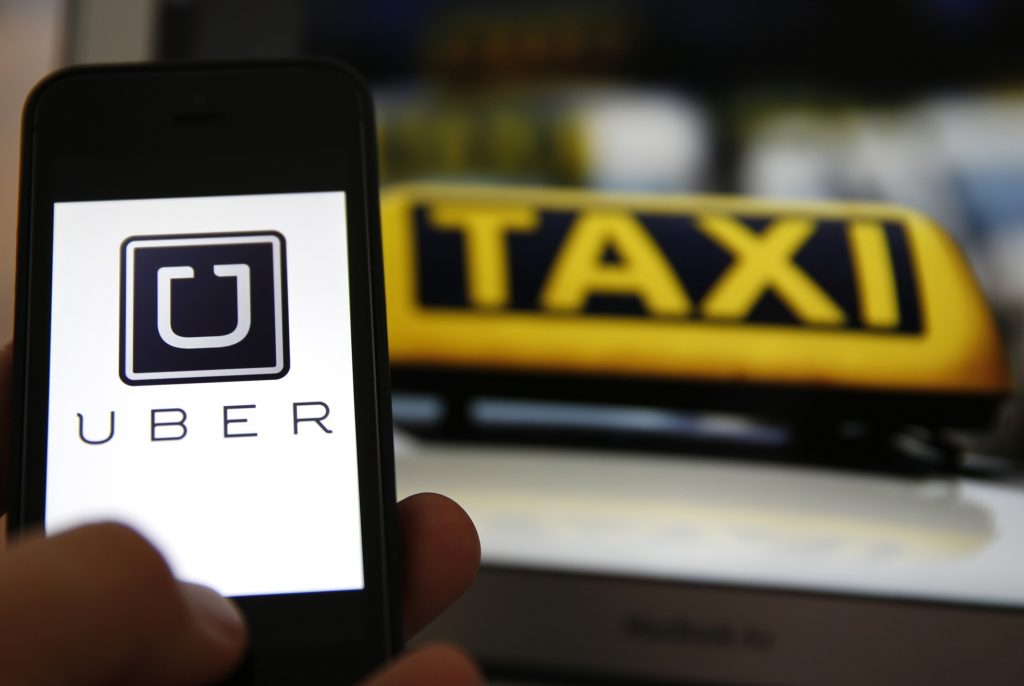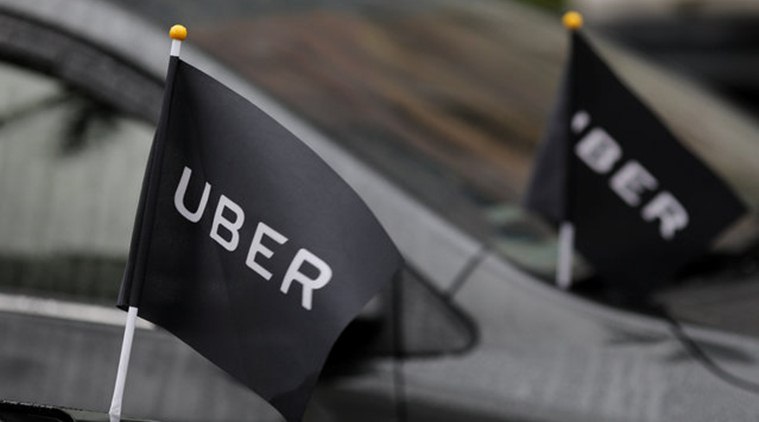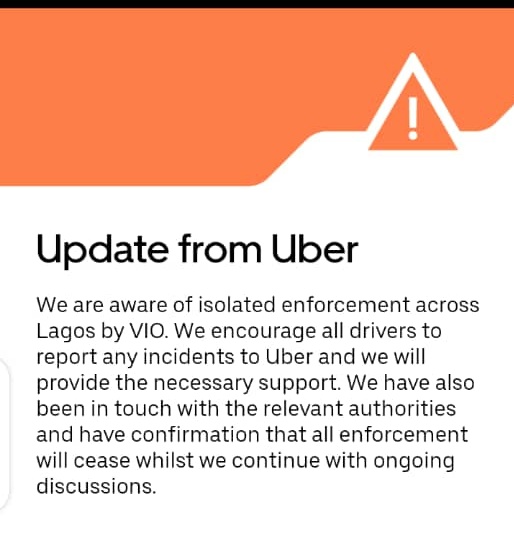Following the clampdown on taxi-hailing companies in Lagos, Uber drivers and drivers of other popular ride-hailing companies have marched on the office of the Lagos State Vehicle Inspection Services (VIS) to protest the crackdown on their operation.


Speaking on the protest, an Uber driver, Adegoke Faloye condemned the shabby way their protest was received, revealing that no official of the Vehicle Inspection Office (VIO) spoke to them.
“Uber and Bolt (Taxify) offices were closed. When the drivers got to VIO’s office in Ojodu, none of the officials came out to talk to them,”
Adegoke Faloye, Uber Driver
He added that instead, VIO officials ordered security officers to send them away.
Last week Technext reported that Lagos had started a crackdown on taxi-hailing, stating that their drivers must have hackney permit, Lagos State Drivers’ Institute (LASDRI) certification and that Uber must pay the operator license fee to the state government.
Some drivers of the ride-hailing platforms were confronted by operatives of the states VIO and their vehicles were impounded.


The Uber drivers’ position
The situation of Uber and other cab-hailing drivers is a dicey and unfortunate one. They seem to be hounded and punished for the shortcoming of Uber as a company. Something that is completely out of their control.
Chairman of the National Union of Professional e-Hailing Driver Partners (NUPeDP), Comrade Ayoade Ibrahim describes the situation as unfair on the drivers.
“We know that this thing will happen that’s why we approached the state government last year,” he said. “The first letter we wrote the government, was on June 2018. But we didn’t see any result. We wrote another letter in July of 2018, we told them a lot of things. In all we wrote like 5 letters, 3 of them in 2019.”
According to Ayoade, the state government eventually called for stakeholders meeting on the regulation of the transport industry. At the meeting, the drivers were informed that Uber hasn’t been complying with the rules.
“If Uber is not complying since 2016, and we as operators have been approaching the government, is it our fault?” Ayoade asked.
“We are not law enforcement, we only partner with Uber. It is the responsibility of the government to get Uber to comply. When you cannot fight Uber which is a foreign company and you decide to fight law-abiding citizens who voted you into power, that is not good.”


Transport woes in Lagos may spike if the clampdown continues
A VIS official who spoke to The Guardian all but confirmed that Uber drivers weren’t exactly at fault, explaining that the government was not interested in impounding vehicles.
“We are not after impounding anybody’s vehicle. We want everybody to feel comfortable doing business in Lagos.”
If that is the case, why then are the VIO officers going after Uber drivers who are merely partners of the company, instead of the company itself?
Uber not aware of drivers’ protest, promises end to harassment
Uber has since distanced itself from the drivers protest, insisting the drivers acted of their own volition. The Spokesman for Uber in West Africa, Efosa Aiyevbomwan, disclosed that he was not aware of the drivers’ plans to protest.


A statement by the company also promised that all harassment would cease henceforth as it had been in tough with relevant authorities.
The company’s spokesman also added that the company is open to engaging the drivers to understand their concerns and was ready to closely deliberate with all relevant stakeholders in Lagos to ensure that operations align with best practices.
The current trouble for Uber and other taxi-hailing in Lagos comes after the government’s ban of commercial and bike hailing startup in some major areas of the state. If the clampdown continues, Lagosian transport woes may spike as the number of Uber drivers may decline significantly.






